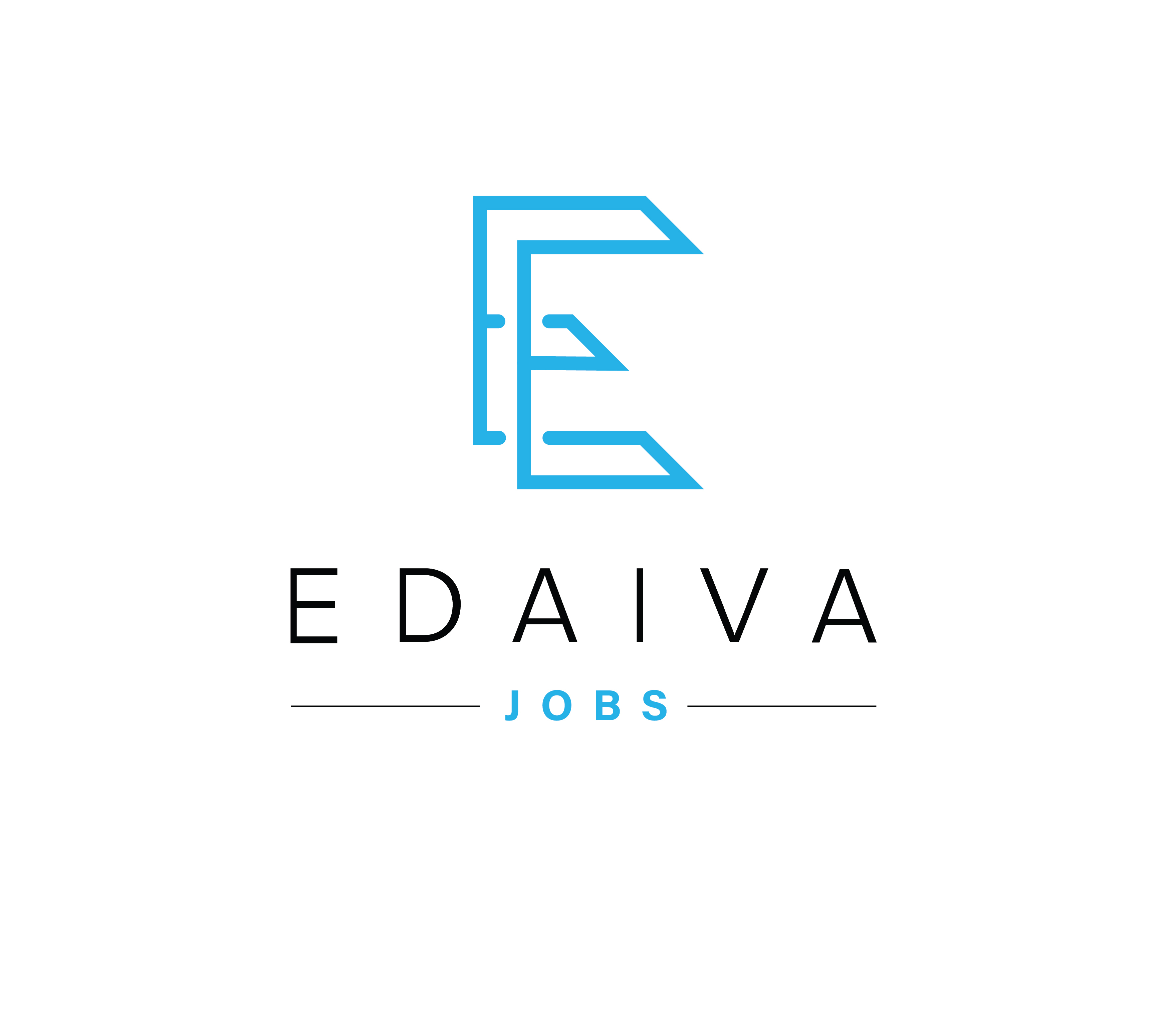BLOGS
How AI, Robotics and Extended Reality Transform Work by 2030?
By Team Edaiva
Last Updated : Aug 13, 2023

The Future of Work - How Will We Work in 2030?
The workplace of the next decade will look radically different due to emerging technologies like artificial intelligence (AI), extended reality (XR), advanced robotics, and more. Here are key predictions for how innovations may transform jobs, skills, and work environments by 2030.
AI Will Automate More Complex Work
Beyond basic tasks, AI is expected to automate many mid-level jobs involving data processing, communication, analysis, and decision making. For example, machine learning algorithms may analyze financial reports, predict equipment faults, optimize logistics, drive trucks and cars, or provide medical diagnoses.
Customer service agents, accountants, radiologists, drivers, manufacturing technicians, and financial analysts are some roles that may decline through AI automation. However, new jobs will arise in designing, developing, managing, and servicing these AI systems. High-level strategic roles leveraging AI will also expand in areas like business intelligence, marketing optimization, and research science.
Content generators like graphic designers, writers, and trainers will be in demand to create training data. Domain experts will need to provide human insight to improve AI decision-making. User experience designers will develop interfaces. Ethicists and policy makers will guide responsible AI practices.
Immersive Extended Reality
By 2030, virtual reality (VR) headsets and augmented reality (AR) glasses will be as common as smartphones today. VR will enable collaborative virtual workspaces for remote meetings, training simulations, and 3D modeling previews. This virtual presence can increase productivity and operational safety.
For example, equipment technicians can learn repairs through experiential VR tutorials. Remote experts can virtually assist workers on-site via shared VR environments. Meetings can seamlessly blend virtual and in-person attendees. VR data visualization can enhance analysis and design.
AR overlays contextual digital information onto real environments. Workers can access instructions, labels, alerts, and data feeds hands-free through AR displays. For instance, warehouse pickers may view packing lists and navigation cues overlaid on their vision. Surgeons can see anatomical scan data as they operate. Maintenance crews get repair cues on equipment. AR boosts productivity and accuracy.
Advanced Robotics Across Industries
By 2030, robotics will pervade a wider range of industries. Advanced sensors, computer vision, natural language processing, and mobility will enable general-purpose service robots. These autonomous collaborative robots or "cobots" can work safely alongside humans.
Cobots will handle repetitive tasks like lifting stock, packaging goods, assembling parts, sorting inventory, dispensing medication, and cleaning. This liberates human workers for higher cognitive roles. Meanwhile, exoskeletons will enhance strength and endurance for manual jobs. Cooperating drones will enable inventory scanning, surveillance, and last-mile delivery.
Warehouse robotics and manufacturing automation will accelerate. Robotic process automation (RPA) uses bots to automate repetitive digital tasks like data entry. AI-guided robots will also expand into construction, agriculture, healthcare, retail, and hospitality. More hazardous tasks like mining and waste management can be fully automated.
Human Skills Become More Valuable
While routine and dangerous work is increasingly automated, uniquely human skills like creativity, empathy, innovation, collaboration, communication, and leadership will only become more crucial across industries. There will be greater emphasis on design thinking, social intelligence, entrepreneurship, ethics, emotional intelligence, and strategic planning.
Lifelong learning also grows imperative as workers continuously adapt skills to keep pace with technical change. With machines handling repetitive tasks, employees can focus on higher cognitive capabilities like ideation, complex problem solving, technical training, and customer relationship management.
Flexible and Remote Work
Demand for flexible and remote work options will likely continue rising beyond 2030, enabled by mature virtual collaboration platforms, 5G networks, VR spaces, and cloud-based work management tools. More roles can be performed remotely. Companies gain access to global talent pools while employees enjoy greater work-life balance.
Preparing for the Future
Here are some tips for learners and professionals to prepare themselves for the future job landscape:
For Students
Pursue internships in growing fields like robotics, AI, and cloud computing to gain hands-on experience.
Take online courses and certifications in emerging technologies to build your skills. Look for programs offering practical project work.
Maintain skills adaptability as technical needs rapidly change. Focus on fundamentals like data structures, algorithms, and programming best practices.
Develop human-centered skills like communication, collaboration, creativity, and emotional intelligence that AI lacks.
Explore new applications of technology in your industry. But also cultivate non-technical abilities. Find the intersection.
Stay current on advances and use cases in your field through online learning platforms and conferences.
For Current Employees
Identify functions in your role that could be automated and develop skills to move into more strategic positions.
Take advantage of workplace training in new technologies like machine learning and process automation. Volunteer for pilot projects.
Maintain valuable institutional knowledge and social skills. Position yourself as the human interface between technology and business.
Proactively communicate with leadership about retraining programs and new initiatives to stay relevant.
Keep updating your skills through online learning, mentorships, hackathons, and certificate courses.
Gain exposure to data science and digital transformation projects to broaden your experience.
Familiarize yourself with technologies affecting your industry and their business applications.
FAQs
Q1: What is the future of work expected to look like in the next decade?
The future of work is set to be radically transformed by emerging technologies like AI, XR, and advanced robotics, leading to changes in job roles, skills, and work environments.
Q2: How will AI impact the job market by 2030?
AI is anticipated to automate mid-level jobs involving data processing, analysis, decision making, and more. While some roles may decline, new opportunities will arise in designing, developing, and servicing AI systems.
Q3: Will AI completely replace human roles in the workforce?
While AI will automate certain tasks, uniquely human skills such as creativity, empathy, and collaboration will become even more valuable. Humans and machines will work together in a hybrid workforce.
Q4: How will extended reality (XR) technologies change the workplace?
XR, including VR and AR, will create collaborative virtual workspaces, enabling remote meetings, training simulations, and enhancing data visualization. AR will provide contextual digital information to workers hands-free.
Q5: What is the role of robotics in the future of work?
Robotics will expand across industries, with advanced sensors, computer vision, and mobility enabling collaborative robots (cobots). Cobots will handle repetitive tasks, while humans focus on higher cognitive roles.
Q6: What human skills will be most valuable in the future workplace?
Human skills like creativity, empathy, innovation, collaboration, and leadership will be crucial. Individuals should focus on developing these skills alongside technical abilities.
Q7: How can individuals prepare for the changing job landscape?
Students should pursue internships in growing fields, take online courses in emerging technologies, and develop human-centered skills. Current employees can identify automation opportunities, gain exposure to new technologies, and maintain social skills.
Q8: What impact will remote work have on the future workplace?
Remote work will continue to rise, enabled by virtual collaboration platforms and advanced technologies. Companies will access global talent, while employees enjoy work-life balance.
Q9: How can individuals stay relevant and up-to-date with emerging technologies?
Individuals should engage in workplace training, online learning, and certifications in new technologies. Keeping updated on industry trends and attending conferences is also important.
Q10: What's the key takeaway about the future of work in 2030?
The future workplace will require a balance between technical abilities and uniquely human skills. Adapting to technological changes and focusing on collaboration with machines will lead to success.
Conclusion
The workplace of the coming decades will be transformed by powerful emerging technologies, requiring both businesses and workers to adapt. Companies need to provide training and promote a culture of lifelong learning so that employees can develop the necessary technical abilities and human skills to complement automation. Individuals should proactively gain exposure to rising innovations in their industry, while focusing on improving uniquely human capabilities like creativity, empathy, and collaboration. Students must look to the future when choosing their skills and fields of study. With vision and preparation, we can direct technological change as an empowering force to build more efficient, meaningful, and human-centric work experiences. While the specific evolution remains uncertain, the future holds immense opportunities for those who flexibly skill themselves and focus on the human element. By working alongside machines in a hybrid workforce, humans can aspire to achieve profound progress and realize our highest potential.
